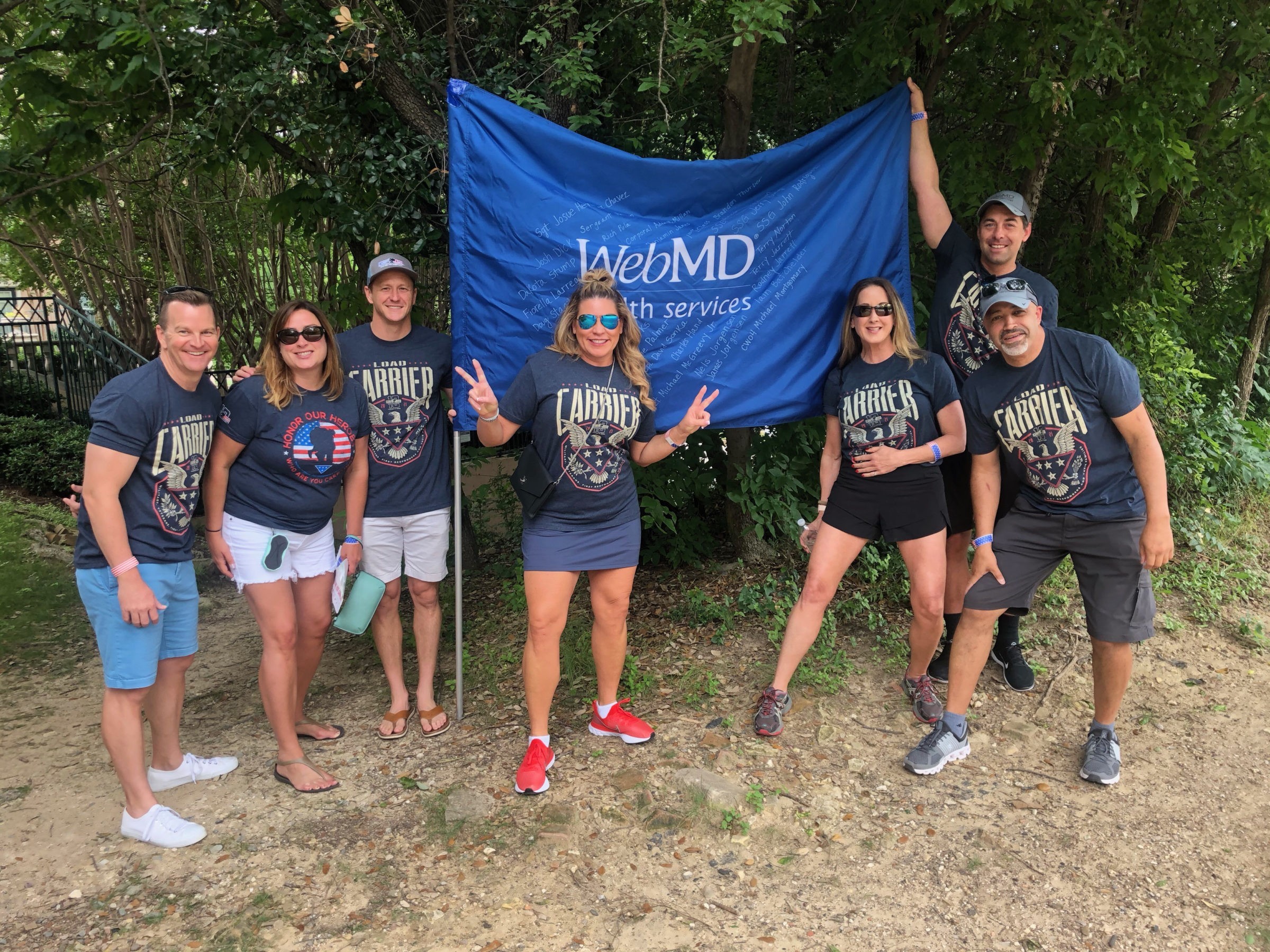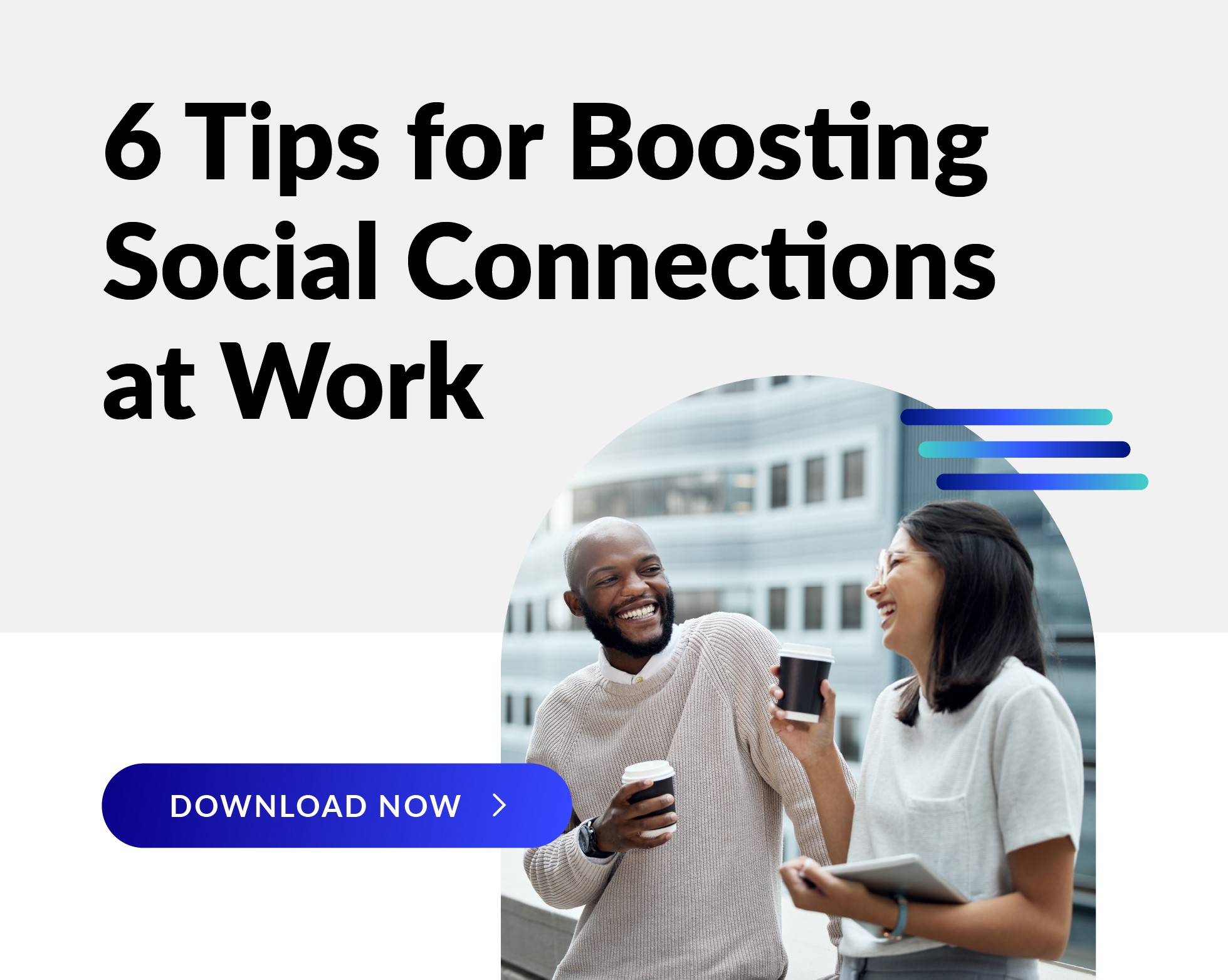 Employees are people first, and it’s important to acknowledge their lives outside of the workplace. Organizations who support the interests and passions of their workforce see increased engagement, better employee health, and a more positive workplace culture. Read on for tips to help your organization “lean in” to what’s important to employees beyond the 9-to-5.
Employees are people first, and it’s important to acknowledge their lives outside of the workplace. Organizations who support the interests and passions of their workforce see increased engagement, better employee health, and a more positive workplace culture. Read on for tips to help your organization “lean in” to what’s important to employees beyond the 9-to-5.
As we near the end of the pandemic, you may be ready to never log on to Zoom again. But in a strange way, seeing our co-workers in their homes gave us a gift. We noticed little things—the guitar leaning against the wall, the cat walking across the screen, a cool piece of art, sports memorabilia on a shelf. Things we didn’t know about people were suddenly there in plain sight. And that gave us the opportunity to engage with each other in a more meaningful way, beyond just the usual “how was your weekend?” chit-chat.
Why is this important?
Before the pandemic, we spent so much time trying to separate our work and home lives in the name of professionalism. But it was stressful trying to keep up that façade. One of the good things about COVID-19 is that it taught us that everyone has a life outside of work, and it’s OK to let some of that show.
When employees feel they can bring their whole selves to work—including their passions for sports, volunteer activities, animals, their kids, whatever—they are more likely to be happy and engaged. And we all know that a highly engaged workforce benefits the bottom line.
Further, when employees participate in volunteer or workplace giving programs, they not only give back to the community on the company’s behalf, but are also more likely to feel committed to their organization.1 A 2019 Boston College Center for Corporate Citizenship’s Community Involvement Study found a high, positive correlation between participation in employee volunteer programs and employee engagement.
Allowing employees to pursue passion projects and give back to the community has clear physical and mental health benefits, too. Helping others has been known to lower cortisol levels, ease pain, lower blood pressure, and boost the immune system. The “helper’s high” we get from volunteering can increase feelings of calmness, reduce stress, and boost one’s sense of self-worth. Encouraging employees to pursue hobbies and do the things they love also helps to ward off burnout.
So how can organizations lean in to their employees’ passions outside of work?
Support the causes your employees support.
At WebMD Health Services, we’re proud to get behind the community and charitable organizations that are important to our employees. Recently, we supported one of our employees, Nate Cavender, who is involved with Carry The Load, an organization that provides active ways to honor our military, veterans, first responders, and their families.
Soon after starting his job at WebMD Health Services, Nate mentioned to his manager that he was involved with Carry The Load. Within a month, WebMD sponsored a Carry The Load event, the sales team traveled to Dallas to march with him, WebMD employees got involved in local rallies, and the company raised over $4,300 for the cause.
As Nate relates, “It’s really hard to put into words how I feel knowing that my job supports our lives and passions outside of work. It’s remarkable to say, ‘this means something to me,’ and they immediately respond with ‘then this means something to us, too.’”
Over the years, we have championed our employees who work with Meals on Wheels, Habitat for Humanity, Big Brothers Big Sisters, and the YMCA. We also have a dedicated chat called WebMD Cares where employees can post about volunteer opportunities in their area.
Encourage a culture of sharing.
Let employees know that the culture supports their passions by highlighting outside-of-work achievements at a town hall meeting. Ask leaders to share a little about their hobbies or interests to set an example. Use employee recognition platforms or a Slack channel to give kudos to people who have accomplished a goal—like running a marathon—or participated in a noteworthy event.
Provide forums for employees to share their talents.
During the pandemic, we found creative ways to connect with each other online. Companies sponsored trivia events, cooking demonstrations, employee talent shows, yoga, and book clubs. Even as many head back into the office, it’s important that we continue to actively find ways for employees to share their talents and interests, just like we did when we were virtual.
Sponsor a corporate-wide community service activity.
Volunteering boosts physical and mental health, and also gives teams a chance to bond. Plan activities that match your company’s mission or business and find a local organization you can develop an ongoing relationship with. As a well-being organization, WebMD Health Services has partnered with the Oregon Food Bank and Gleaners Food Bank in Indianapolis to help reduce food insecurity.
Grant paid time off for individual volunteerism.
Many companies now offer paid volunteer time off as part of their benefits package. Giving back is particularly important to younger generations, who now make up the majority of the workforce. According to a survey by Glassdoor, about 75% of millennials expect their employer to participate in social good, either with donations or through volunteering.
The pandemic has given us a chance to take stock of what’s important in our lives. And it may also have given us a bit more time to pursue things we love. Employees are not likely to abandon those things when they head back to the office, so find ways to embrace your employees outside of their work. Your employees and the organization will reap the many benefits of doing so.
Related Content:

